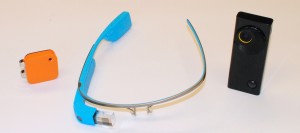PIs Apu Kapadia and David Crandall at IU, and Denise Anthony at Dartmouth College, have received a $1.2M collaborative NSF award (IU Share: $800K) to study privacy in the context of wearable cameras over the next four years. The ubiquity of cameras, both traditional and wearable, will soon create a new era of visual sensing applications, raising significant implications for individuals and society, both beneficial and hazardous. This research couples a sociological understanding of privacy with an investigation of technical mechanisms to address these needs. Issues such as context (e.g., capturing images for public use may be okay at a public event, but not in the home) and content (are individuals recognizable?) will be explored both on technical and sociological fronts: What can we determine about images, what does this mean in terms of privacy risk, and how can systems protect against risk to privacy?
Read more about this grant, and our project. Here is a 90-second video!


